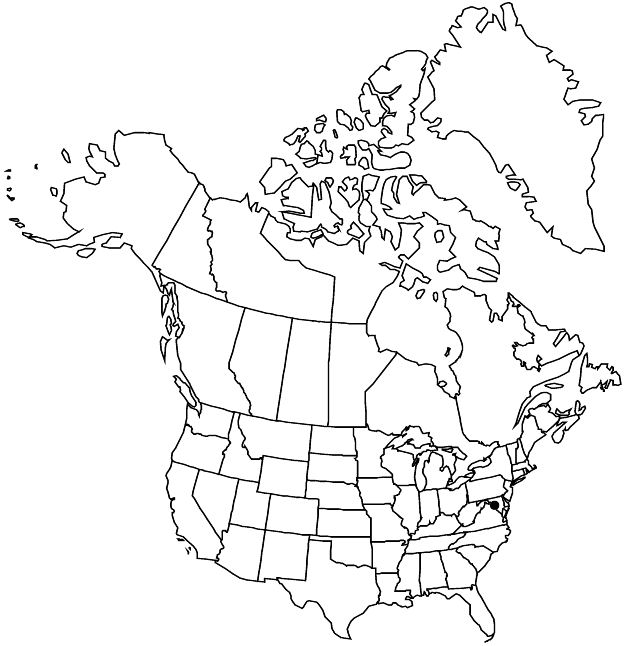Althaea cannabina
Sp. Pl. 2: 686. 1753.
Herbs perennial, (0.5–) 1–2 m. Stems erect, clumped, branched distally, canescent, hairs stellate. Leaves: stipules mostly persistent, narrowly linear, simple or 3-fid, 2–8 mm; petiole as long as blade in proximal leaves, greatly reduced in distal leaves; blades of proximal leaves deltate-ovate, 3–5-palmately lobed or divided ± to base, 3–12 × 2–16 cm, lobes oblong to lanceolate, middle lobe longest, margins deeply dentate to serrate, surfaces stellate-hairy, blades of upper leaves similar but narrower, 3–5-palmately lobed or divided, 1–4.5 × 0.5–6 cm, base cuneate, margins serrate, apex acuminate. Inflorescences solitary flowers, usually long-pedunculate (1–15 cm) or peduncle 2–3-flowered apically; bracts 2, linear, 2 mm. Pedicels 0.5–16 cm; involucellar bractlets 7–9, erect, lanceolate, 3–7 mm, slightly accrescent, 1/2+ as long as calyx, stellate-tomentose. Flowers: calyx 5–7 (–10) mm, lobes ovate, 2 times as long as tube, margins entire, apex obtuse, acuminate, or apiculate, stellate-tomentose; petals pink to pink-purple, 10–23 × 5–12 mm, 2 times as long as calyx, apex obtuse or notched; staminal column 0.5–6 mm, glabrous or sparsely clavate-hairy; anthers in upper 1/2, purplish to purplish brown; stigmas 12–16. Fruits somewhat longer than calyx and not concealed, 7 mm diam.; mericarps 12–16, brown, unwinged, reniform, 2.5–4 × 2–3.5 mm, striate with ribs radiating from rugose central area, back herringbone-veined, glabrous. Seeds brown, reniform, 3 mm, glabrous. 2n = 84.
Phenology: Flowering summer.
Habitat: Disturbed, usually moist areas
Elevation: 0–200 m
Distribution

Introduced; D.C., Europe, Asia (nw Iran), Asia (s Russia), Asia (Turkey), Asia (Turkistan), widespread
Discussion
Althaea cannabina is occasionally cultivated as an ornamental, and rarely escapes or naturalizes.
Selected References
None.